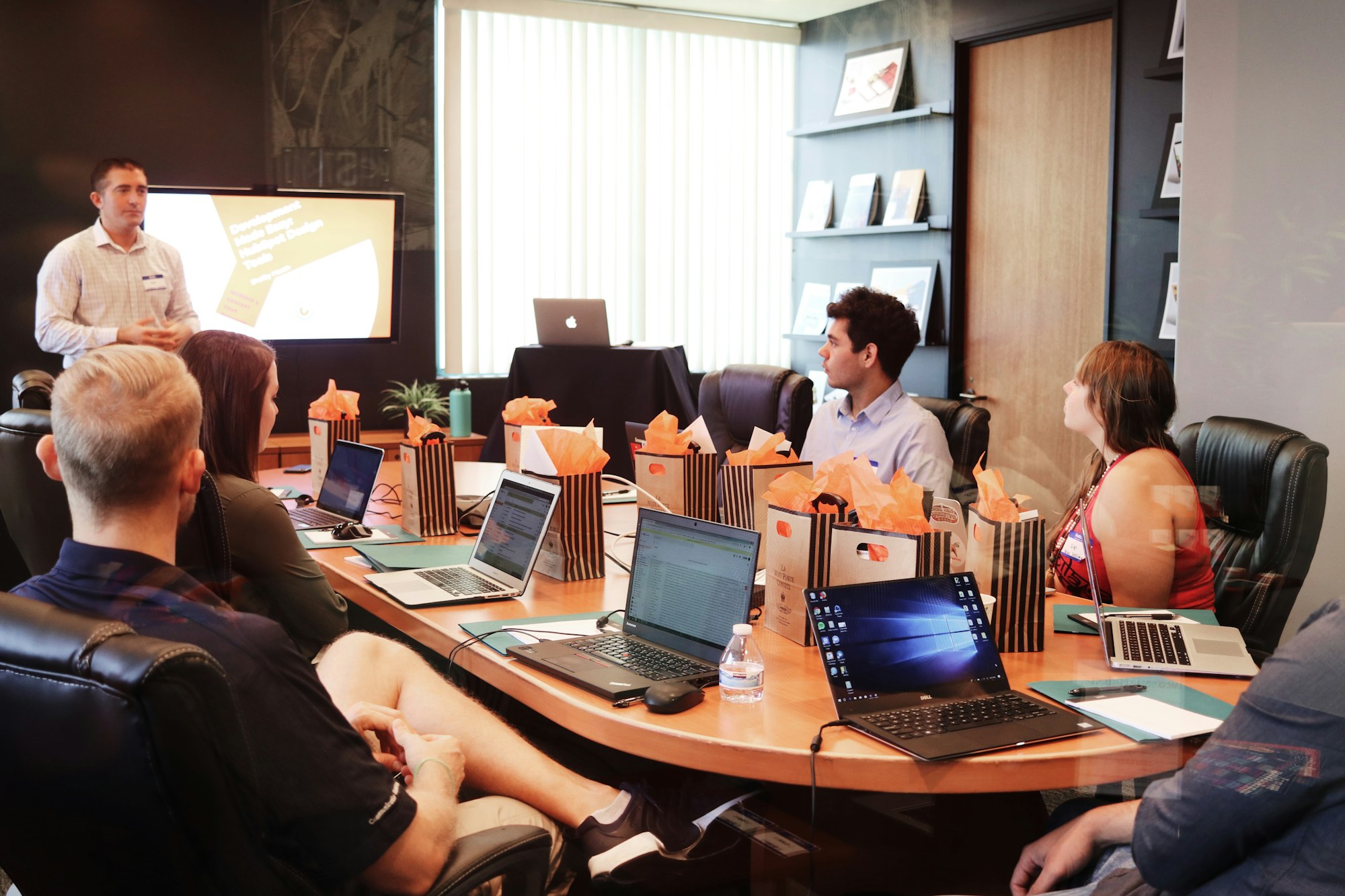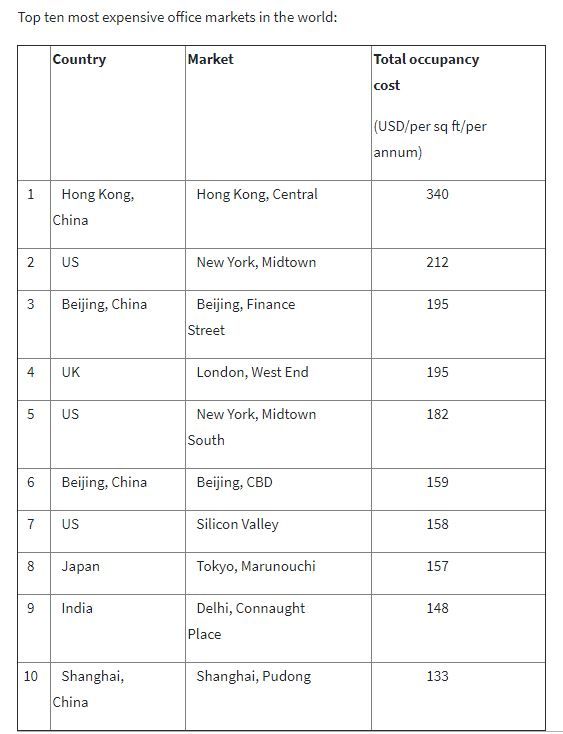Following last post on the evilness on remote working, let's cover its perks.
1. Cost Saving

For the Company
Renting an office space costs a fortune especially in top cities such as New York and Hong Kong. For certain professionals, office location is a revelation of capability, experience and social status. For instance, top law firms in Hong Kong are usually located at Central which is the top tier commercial area of the city. Less prestigious law firms might rent a space at WanChai and Tsim Sha Tsui. Anonymous ones might have their office out of the urban area e.g. in New Territories. As for other less sensitive industries, companies would usually resort to less prime areas that come with lower rent yet bigger office space.

Apart from the rent, companies also get to save adjacent occupying costs such as utilities and electricity, facilities and amenities maintenance, cafeteria service or refreshment replenishment. These may seem little in the first place - yet the bill is significant when it is accumulated over time.
For the Worker
Travelling to work comes with costs. This includes:
- Transportation which can be more significant if you drive instead of taking public transportation
- Food and beverage: food around office areas tend to be more expensive due to the rent and the affordability of that demographic population. One may avoid by packing his/ her own lunch yet it could be rather troublesome (prior preparation, fitting the rectangular lunchbox in your purse) and you miss chances of mingling with your colleagues which are essential for fostering relationships and building connections.
- Clothing and accessories: workers would purchase multiple sets of outfits (business formal and business casual) for different occasions. This may seem extra and superficial yet optics are important for first impressions - imagine seeing your boss in greasy hair, T-shirt and jeans with covered with coffee stains and wrinkles, how excited are you in hearing his upcoming presentation on company expansion?
2. Flexibility

Hiring
With the help of collaborating platforms such as Slack, Trello and Basecamp, work distribution and discussion have become increasingly easy and convenient. Even in the physical workplace, it is not uncommon for us to communicate and exchange information digitally. Digital transformation has helped businesses to transcend time and space constraints - companies are no longer limited to the local labour force. This opens up the business to a bigger talent pool that comes with distinctive interest and expertise; vice versa, workers are exposed to more working opportunities that better match their skillsets, working style and remuneration expectations.
Job searching and talent hunting are enabled by platforms like Fiverr, Topal, Crossover and AngelList. Another more straightforward way is posting job openings on LinkedIn and attaching tags relevant to the nature of the work or company e.g. #startup, #BusinessDevelopment, #FrontEndEngineer. Interested individuals could make reference to the company page and reach out to the People’s Team or Founders easily.
Work as You Please
Another big perk for remote working is that you can work in the way you feel the most comfortable and productive. In physical workplaces, many experience a sense of obligation to appear hardworking and focused whilst they are actually worn out by the long day of work or simply running out of creativity for one particular piece of work. Some companies complement this by providing amenity facilitates like rest zones with cosy sofas for a short break or cafeterias with coffees and desserts for rejuvenation.
As for remote working, tasks become more result-oriented, as long as you can get things done by the designated deadline, the process doesn’t really matter. Thus, workers get to pace themselves accordingly and take breaks when necessary. Working in comfortable pyjamas and taking naps in the middle of the afternoon no longer seem inappropriate. Workers are more likely to find satisfaction and motivation in working which subsequently boosts productivity and creativity.
Tech Companies that are Aggressively Shifting to Remote Working



Pinterest has announced that they are cancelling a 490,000 square feet office lease near its San Francisco headquarters by paying $89.5 million termination fee.
Slack announced in June that they would be extending the office reopens so as to ensure employee’s health in the midst of COVID. On the other hand, the management has decided that most employees would get to choose to work remotely on a permanent basis and phase out in-office amenities to focus more on solo work instead of in-person meetings.
Being the first company that adopts the work-from-home practice, Twitter announces that they wouldn’t be returning to the offices promptly as they are convinced that distributed working is as effective as the conventional, centralised form.
Conclusion - Remote Working as a Double-Edged Sword

These two articles have covered briefly both the upsides and downsides of remote working. I personally believe remote working is inevitable in the coming decades due to people’s mounting demands of personal space, mental health and freedom, coupled with the emergence of affordable communication and collaboration tools. COVID merely expedites the progression by forcibly asking everyone to improvise, adapt and overcome the challenges posed by social distancing.
Whether remote working is something that should be adopted ultimately comes down to your personal preference and the company you are working at. As cliched as it may sound, it is quite likely that hybrid mode would be the most foreseeable phenomenon observed in the future labour market. And we must all learn and observe ourselves in the new environment and ambience.
Remote Working at Forbole
As a tech startup whose work happens in the digital space, we have always been a remote team that has staff in Hong Kong, Taiwan, the United States and Italy. We are extremely proud of the diversity of the team which is across gender, functions, experience and expertise. Owing to a flat hierarchy, everyone is unafraid of expressing their opinions, even in the expense of lengthened discussion and more thorough analysis. Founders always emphasise the need for time off from work and strongly encourage employees to pace themselves according to their own needs.
In the previous two years, we have expanded rigorously with more team members from other parts of the world. There are indeed obstacles to be overcome in terms of the delegation of work and team bonding (especially across teams) for value alignment and reducing the loneliness individuals experience when working alone. Hence, internal communications have become our top priority and we perpetually hope to create a community where people are genuinely motivated to work hard and develop a life outside of work.
Stay tuned to get to know our thoughts on the latest development in workplace, productivity and blockchain area. Don’t forget to visit our company website and Twitter to learn more about us. Until later, folks!
